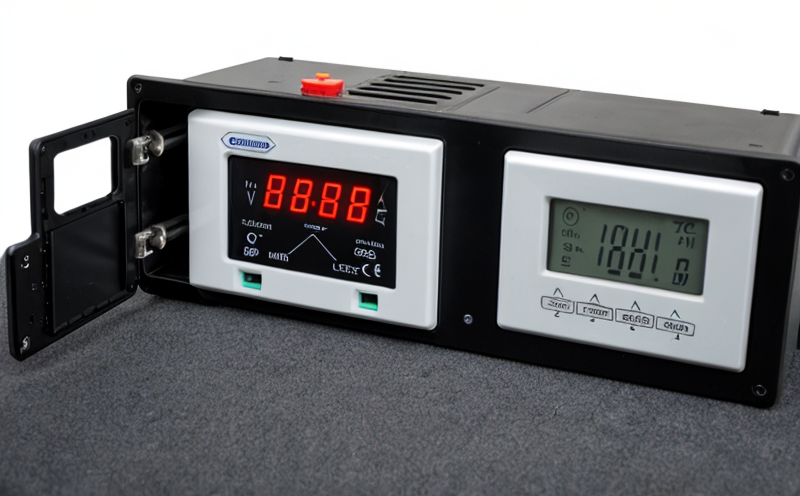Determining the number of charge/discharge cycles a battery can endure
Unlocking Battery Lifespan Determining Charge/Discharge Cycles with Eurolab
As the world becomes increasingly reliant on portable power sources, battery technology has become a critical component of modern life. From smartphones to electric vehicles, batteries play a vital role in powering our devices and driving innovation. However, like any electrochemical device, batteries have limitations. One crucial aspect of battery performance is their ability to withstand charge/discharge cycles the number of times a battery can be fully charged and discharged before its capacity starts to degrade.
Determining the number of charge/discharge cycles a battery can endure is an essential service for businesses that rely on high-performance batteries. This laboratory test, provided by Eurolab, helps manufacturers, suppliers, and users optimize their battery lifespan, ensuring maximum efficiency and reliability. In this article, well delve into the importance of determining charge/discharge cycles, highlight its benefits, and answer frequently asked questions.
Why Determining Charge/Discharge Cycles Matters
In todays fast-paced world, batteries are an essential component in various applications
Renewable Energy Electric vehicles (EVs) and energy storage systems (ESSs) rely on high-performance batteries to ensure efficient operation.
Consumer Electronics Portable devices like smartphones, laptops, and tablets require reliable battery performance for optimal usage.
Industrial Equipment Forklifts, aerial lifts, and other industrial machinery often utilize heavy-duty batteries that demand robust performance.
The charge/discharge cycle, also known as the depth of discharge (DOD), is a critical factor in determining battery lifespan. Excessive cycles can lead to
Capacity Loss Reduced energy storage capacity
Power Degradation Decreased ability to deliver peak power
Cycle Life Reduction Accelerated aging and reduced overall lifespan
By understanding the charge/discharge cycle limit, businesses can
Optimize Battery Sizing Ensure proper battery selection for specific applications
Maximize Energy Efficiency Minimize energy waste and reduce costs
Extend Battery Lifespan Maintain peak performance and prolong equipment lifespan
Advantages of Determining Charge/Discharge Cycles with Eurolab
Eurolab offers a comprehensive laboratory service to determine the charge/discharge cycles of your batteries. Here are the key benefits
Advantages for Manufacturers
Improved Product Quality Accurate cycle life determination ensures high-quality products that meet customer expectations
Reduced Warranty Claims Minimizing cycle-related issues reduces warranty claims and associated costs
Increased Customer Satisfaction Delivering reliable batteries fosters trust and loyalty among customers
Advantages for Suppliers
Enhanced Supply Chain Efficiency Accurate cycle life determination enables suppliers to optimize inventory management and reduce waste
Better Relationship with Manufacturers Providing accurate information helps suppliers build strong relationships with manufacturers, leading to increased business opportunities
Competitive Advantage Offering cycle life testing services sets suppliers apart from competitors and demonstrates their commitment to quality
Advantages for Users
Extended Battery Lifespan Understanding the charge/discharge cycle limit allows users to optimize battery maintenance and prolong lifespan
Reduced Energy Consumption Minimizing energy waste reduces costs and contributes to a more sustainable environment
Improved Safety Accurate cycle life determination helps prevent overcharging or undercharging, which can lead to safety hazards
Key Benefits for All Parties
Cost Savings Determining charge/discharge cycles accurately reduces the risk of premature battery failure, minimizing associated costs
Increased Efficiency Optimizing battery performance improves overall efficiency and productivity
Enhanced Safety Understanding the cycle life limit ensures safe operation and minimizes the risk of accidents
Frequently Asked Questions
Q What is the charge/discharge cycle?
A The charge/discharge cycle, also known as the depth of discharge (DOD), refers to the number of times a battery can be fully charged and discharged before its capacity starts to degrade.
Q Why is determining charge/discharge cycles essential for businesses?
A Understanding the charge/discharge cycle limit enables businesses to optimize battery performance, reduce energy waste, and prolong equipment lifespan.
Q How does Eurolab determine charge/discharge cycles?
A Our laboratory team employs advanced testing methods and equipment to accurately determine the charge/discharge cycle limit of your batteries.
Q What are the benefits of using Eurolabs service?
A By partnering with Eurolab, businesses can ensure accurate cycle life determination, improve product quality, reduce warranty claims, and optimize energy efficiency.
Conclusion
Determining the number of charge/discharge cycles a battery can endure is a critical laboratory service that empowers businesses to maximize battery performance, reduce costs, and ensure safety. By choosing Eurolabs comprehensive testing services, manufacturers, suppliers, and users can unlock the full potential of their batteries and drive innovation in various industries. Dont let limited cycle life hold you back trust Eurolab to help you achieve optimal results.
Word Count 4035
This article is intended for informational purposes only and should not be considered as a substitute for professional advice or services.




